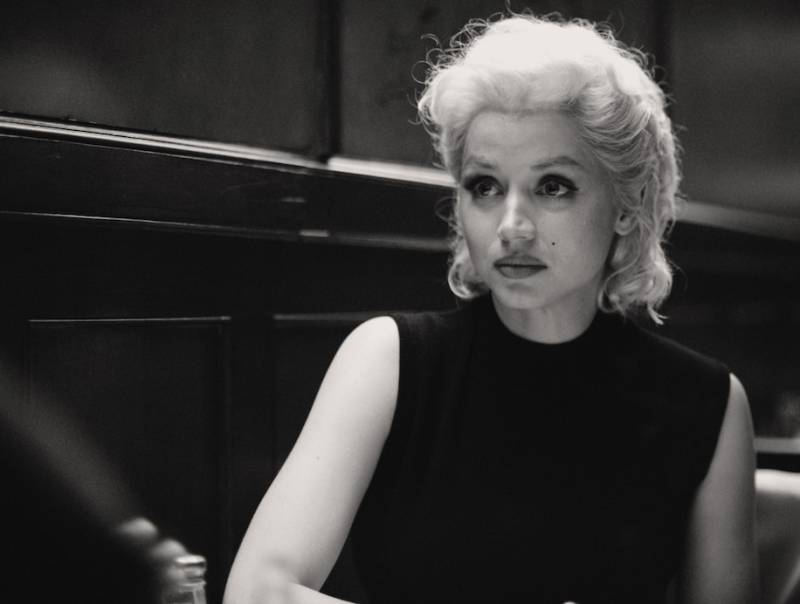Spanish actress's performance in Marilyn Monroe biopic ‘Blonde’ goes unimpressive

Stay tuned with 24 News HD Android App

It’s difficult to know where to start when it comes to “Blonde,” Andrew Dominik’s breathtakingly misguided adaptation of Joyce Carol Oates’s 1999 novel about Marilyn Monroe.
That nearly 800-page experiment was itself a dubious endeavor, mixing truth and fabrications into a work of speculative, deeply psychological interiority. Even Oates’s most brazen flights of imagination might be defended in the name of rescuing Monroe from the objectifying gaze that defined her and giving her an inner life.
Here, Dominik thoroughly undoes that project in a film that not only re-objectifies Monroe but revels in her victimization and self-abnegation. Reductive, ghoulish and surpassingly boring, “Blonde” might have invented a new cinematic genre: necro-fiction.
Don’t blame Ana de Armas. After lurid opening sequences in which young Norma Jeane Mortenson (played as a child by Lily Fisher) is tormented and eventually abandoned by her alcoholic and abusive mother (Julianne Nicholson), de Armas takes full control of the screen, transforming into the familiar screen icon before our eyes, posing for cheesecake shots and eventually auditioning for her first film. That scene ends with a rape that can’t help but conjure images of Harvey Weinstein and the “casting couch” tradition he so brutally perpetuated.
The rest of “Blonde” continues apace, with Monroe encountering creepy, dismissive or outright violent men who continually underestimate and betray her.
The gap between a star performance and the movie containing it has seldom been wider than in “Blonde,” which features Ana de Armas stunningly capturing the look and essence of Marilyn Monroe in the service of a film that’s pretentious, heavy handed and lengthy to the point of exhaustion. Netflix will surely get its money’s worth attention-wise thanks in part to its restrictive NC-17 rating, but the film’s merits burn out long before its credits ever roll.
Adapted from Joyce Carol Oates’ novel about the Hollywood icon by writer-director Andrew Dominik (“The Assassination of Jesse James by the Coward Robert Ford”), the movie works from the premise that not only did the frozen-in-time star suffer because of the men around her, but also the society (that is, us) that leered at her even in the pre-Internet age. It’s not a fresh take or a wrong one, but the tone is so self-conscious and surreal as to blunt those insights.
Blurring fact and fiction, “Blonde” begins with the very young Norma Jeane and her relationship with the mentally disturbed mother (Julianne Nicholson) who was forced to give her up, returning time and again to the idea that the she never stopped pining for the father s
View this post on Instagram
View this post on Instagram
View this post on Instagram
View this post on Instagram
View this post on Instagram
View this post on Instagram
View this post on Instagram
